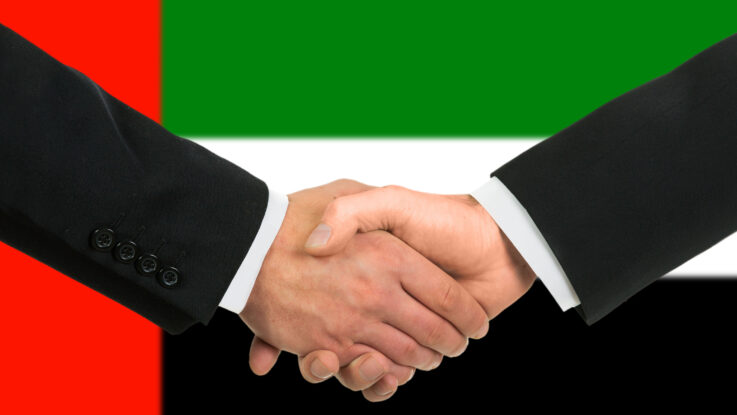
The United Arab Emirates’ Cybersecurity Council has agreed to a number of partnerships to better improve its threat intelligence sharing capabilities, including forging ahead with collaborations with other nations.
Following a spate of recent cybersecurity conferences, the UAE has signed a series of memorandums of understanding (MoUs) to better improve the state of cybersecurity within the country, including with the US Treasury Department.
The MoU with the US is an agreement to share information on threats and incidents affecting the financial services industry. This should be particularly relevant when considering that the UAE has been given an AA- rating with a “stable outlook” for its banking sector.
The country also signed a MoU with Morocco, where the two states will set up a joint committee to plan and oversee the implementation of capabilities to respond to cyberattacks (details on specific points of the agreement are not available), and also with Chad, where the two countries have pledged international cooperation on cyber matters. The outreach to Africa is notable given that cybersecurity centers are rapidly being opened across the continent — Morocco’s opened last year following directives that were written in the last decade.
A UAE Cyber Vision for the Next Few Decades
Mohamed Hamad Al Kuwaiti, head of cybersecurity for the UAE government, told local media that these partnerships are part of a vision of establishing an advanced digital infrastructure to prepare for the next half century.
And indeed, this comes at an opportune time for the UAE, as its overall cybersecurity posture has been improving over the past few years. It ranked fifth in the most recent Global Cybersecurity Index, jumping 33 places from its previous placing, following the opening of its Cybersecurity Council in 2020.
“This allows the parties involved to see the issue of cyber defense from different points of view, and will certainly aid in a better and more well-rounded security posture for all involved, not just the UAE,” says Andi Ursry, cyber-threat intelligence analyst at Optiv.
UAE’s Business Agreements on Cybersecurity Readiness
On top of the national agreements, the UAE also signed MoUs with several cybersecurity vendors. With Kaspersky, for instance, the UAE will collaborate to share information on identifying, investigating, and responding to evolving cyber threats, and exchange expertise on the latest malware trends, indicators of compromise, and security risks faced by the economic sectors of the country.
And with Microsoft, the UAE will cooperate and conduct information exchanges in cybersecurity related fields, with particular attention paid to national cooperation, deterrence, prevention, and responses to cyberattacks. The two parties will also work together to promote awareness-building through educational programs, as well as exploring business and economic exchanges for cybersecurity, they said.
Al Kuwaiti commented that the UAE’s ICT industry has opened new “windows of opportunity” but added that the nation is also vulnerable to new and sophisticated types of security risks, which are dynamic and evolving in nature. As a result, these MoUs are forged with partners “with the essential expertise and tools to eliminate information security incidents.”
The UAE Cybersecurity Council’s actions in the past few weeks show clear ambitions for the country to be more global in its cyber capabilities, says Vibin Shaju, UAE general manager at Trellix.
“MOUs and public-private partnerships can encompass information sharing, collaborative incident response, regulatory compliance, public awareness and education, collaborative exercises and drills,” he notes. “Such collaboration is critical for addressing the dynamic and evolving nature of cybersecurity threats.”